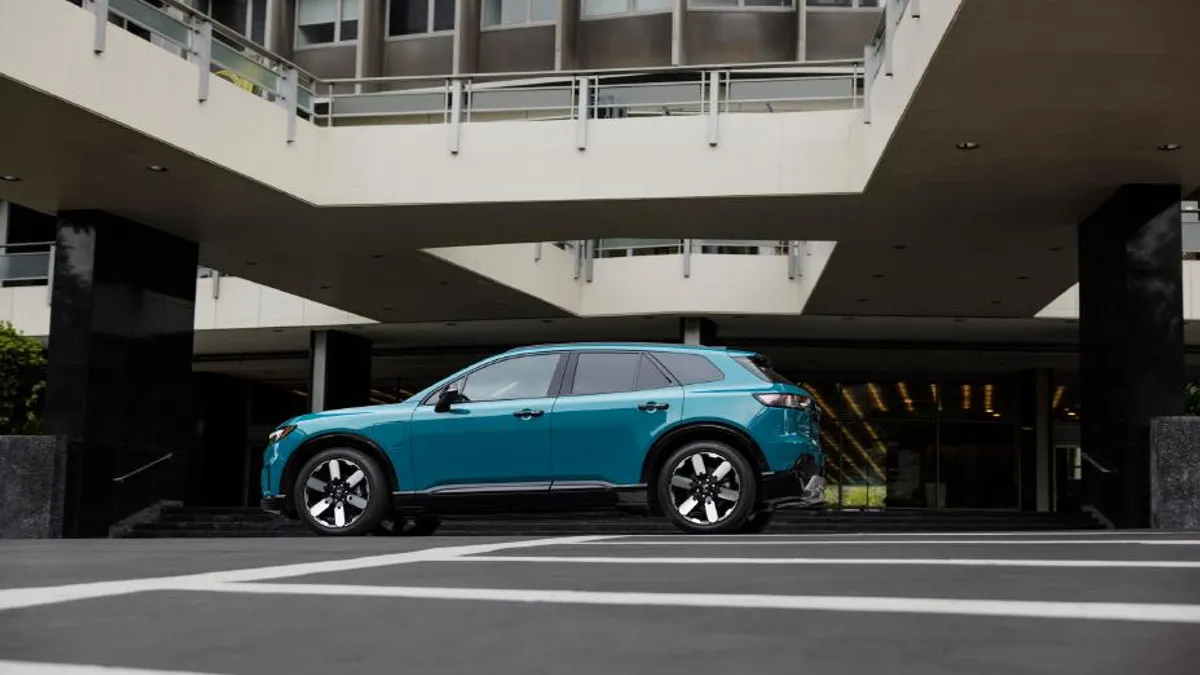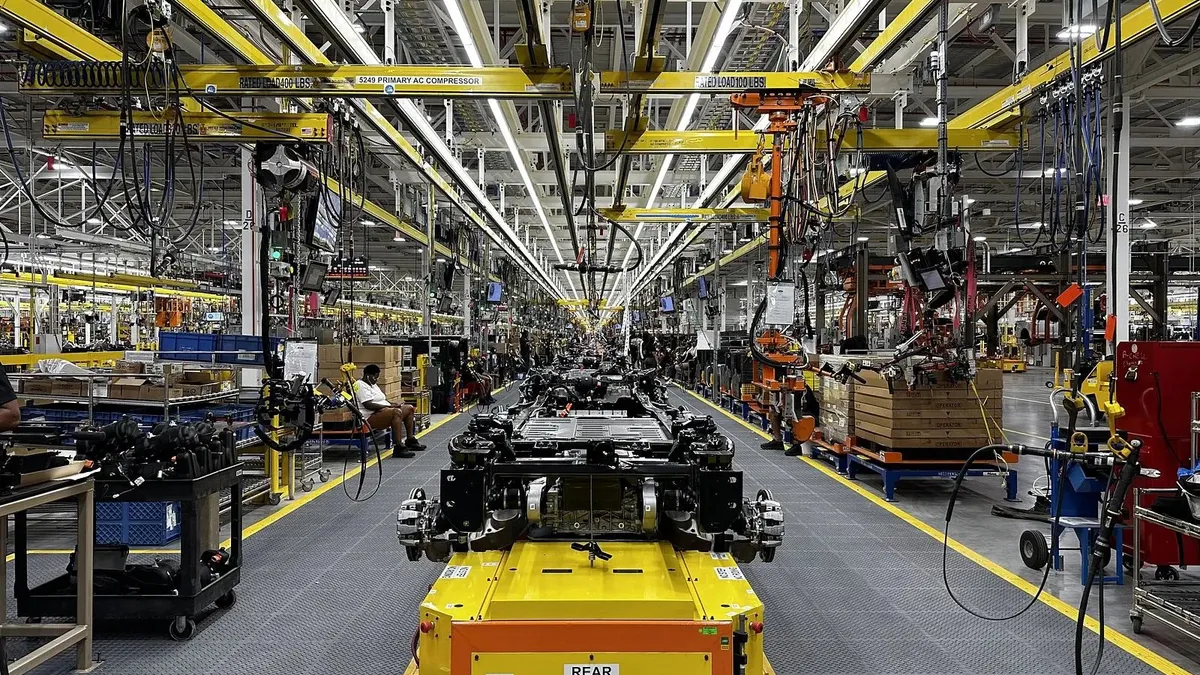Dive Brief:
- General Motors and Honda are abandoning their $5 billion plan to co-develop affordable electric vehicles for the North American market, the companies confirmed in an email Wednesday.
- The automakers had planned to start producing millions of jointly developed EVs, using GM’s Ultium battery technology, in 2027.
- The announcement comes after GM curbed its EV ambitions on Tuesday.
Dive Insight:
Some automakers, including GM and Ford, are reining in their EV plans as demand weakens, competition rises and industrywide price wars led by Tesla shrink margins.
When GM reported its third quarter earnings Tuesday, the automaker said it would scale back its plan to build 400,000 EVs by 2024 as it deals with the UAW strike and aims to cut costs. Last week, GM said it would delay the production start of electric trucks, including the Chevy Silverado EV and GMC Sierra EV.
The automaker, however, still plans to have the capacity to build 1 million EVs annually in North America by the end of 2025.
“GM’s focus over the next two years will continue to be on scaling the Ultium Platform and battery cell capacity, expanding a robust domestic EV supply chain, and delivering a comprehensive portfolio of EVs across categories, including lower cost models,” GM said in an email.
GM and Honda first announced their plan to co-develop more affordable EVs in April 2020. Honda was supposed to design the vehicles’ exteriors and interiors, while GM would design and engineer the platform. GM had planned to build the EVs at its plants in North America.
The automakers both agreed to abandon their plan to jointly develop and produce EVs.
“After extensive studies and analysis, we have come to a mutual decision to discontinue this program,” the companies said in an email. “Each company remains committed to affordability in the EV market.”
Honda has worked with GM on battery module development since 2018. GM confirmed it would continue to work with Honda on other projects. These include co-developing affordable electrified vehicles, fuel cell technology, autonomous ride-hailing vehicles like the Cruise Origin, and launching an autonomous ride-hailing service in Japan.
In September, Honda said it would begin selling the all-electric Prologue SUV, which was jointly developed with GM and built on GM’s Ultium EV platform, in 2024. It’s Honda’s first mass market EV for the U.S. The Prologue will come with a single-motor, front-wheel-drive powertrain or a dual-motor, all-wheel-drive powertrain.
Honda said in April 2022 it would launch 30 new EVs globally by 2030, aiming to produce more than 2 million EVs annually.














